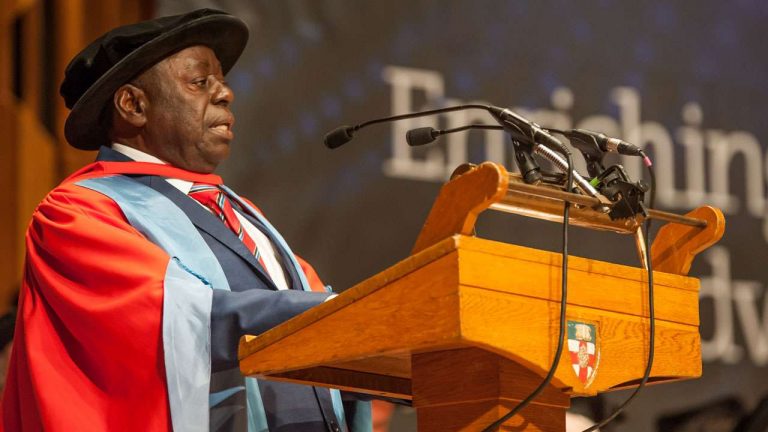
The Founder of Afe Babalola University, Nigeria and a legal luminary, Mr. Afe Babalola had opined that the 2023 elections would produce “recycled leaders” if held under the Nigerian 1999 Constitution.
Speaking at a media briefing on Monday, 18th April 2022 in Ado-Ekiti, the capital of Ekiti State, the Senior Advocate of Nigeria (SAN) frowned that politics had become a “lucrative” enterprise in the country.
According to him, instead of holding elections in 2023 when President Muhammadu Buhari’s term ends, an interim government should be formed to steer Nigeria in a new direction.
Register for Tekedia Mini-MBA edition 19 (Feb 9 – May 2, 2026): big discounts for early bird.
Tekedia AI in Business Masterclass opens registrations.
Join Tekedia Capital Syndicate and co-invest in great global startups.
Register for Tekedia AI Lab: From Technical Design to Deployment (next edition begins Jan 24 2026).
He said the 2023 elections should be suspended, and an interim government inaugurated to serve for six months, and develop “a new-look peoples’ constitution which should provide for part-time legislators and non-executive president”.
He went further to highlight that the interim government ought to be selected from previous presidents and vice-presidents, ministers and governors, as well as delegates of prominent professional associations.
“The same constitution has made politics become not only very attractive but the only lucrative business in Nigeria today. What this means is that any election that holds under the present scenario will end up producing transactional and recycled leaders, with no ability to turn things around.
“The new constitution should also provide that there shall be no salary, but sitting allowances only for lawmakers. It should provide a true federal system of government, instead of the expensive presidential system of government. I suggest a parliamentary system of government with a unicameral legislature.
“The new constitution should also provide a body at the local, state and federal levels to screen all aspirants on the sources of their wealth and means of livelihood.”
Mr. Babalola, in his own capacity as a Nigerian stakeholder, may have spoken well towards ushering in a better Nigeria, nevertheless, there’s need for well-meaning and rational Nigerians to critically re-examine the myriad of suggestions presented by the legal practitioner and entrepreneur.
First, anyone of the view that the present Nigerian Constitution is weird and outdated, is not doing the country any good, or perhaps might be yet to truly understand the essence of the overall content of the aforementioned legal document.
It’s noteworthy that virtually all the suggestions tendered by Mr. Babalola had in various occasions and fora been submitted by different Nigerians. It suffices to assert that the same issues have been over-flogged by seemingly concerned citizens of the country.
Nigeria currently has a good and wholesome Constitution. What the country needs, however, is an amendment of a few sections of the said document, not a total overhaul. It’s worth noting that the Constitution of developed countries like the United States’ of America (USA) is just not unlike a pamphlet, but that of Nigeria is a book.
The actual plight of Nigeria’s Constitution lies in its implementation. The legal document currently suffers lack of implementation. Any constitution or law requires amendment as time progresses and when need be, hence that of Nigeria wouldn’t be exceptional. But that doesn’t mean we need to replace the entire document.
Among the suggestions tendered by Mr. Babalola, I’m of the view that the best and apt one is the idea of eradicating the ongoing bicameral system of legislature, but not to make it a part-time activity.
Legislature unequivocally ought to be a full-time assignment. The problem with ours is that the relevant authorities have decided to allow the Nigerian legislators to behave as it pleases them. This is the reason I earlier opined that the actual predicament bedeviling the Nigeria’s Constitution is inadequate implementation.
Overtime, in this part of the world, we watch those who make the laws end up breaking them, as if there is no law enforcement agencies instituted within the shores of the country. For crying out loud, until we ensure that individuals aren’t more powerful than the constituted institutions, Nigeria will continue to get it wrongly.
In summary, setting up an interim government as opined by Mr. Babalola isn’t the remedy to the present Nigeria’s socio-political and economic plight, rather ensuring that the existing Constitution and extant laws are workable as well as making apt amendments where and when necessary.



